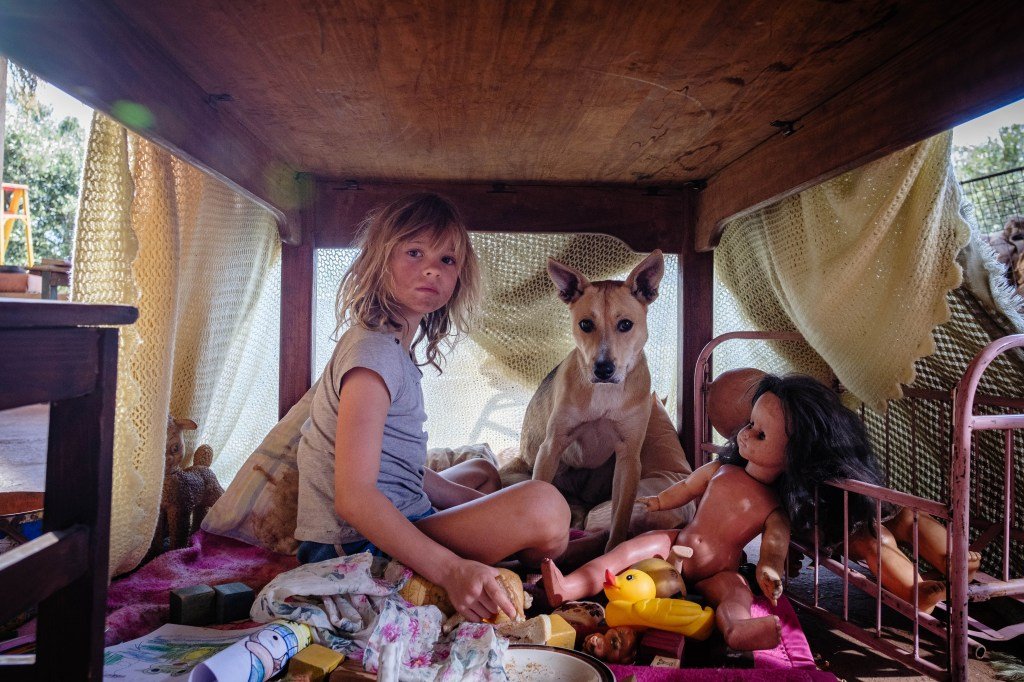Embracing Innocence in “Don’t Let’s Go to the Dogs Tonight”: The Making of a Film That Reflects Reality
The Toronto International Film Festival recently showcased “Don’t Let’s Go to the Dogs Tonight,” an adaptation of Alexandra Fuller’s acclaimed memoir, featuring the talented Lexi Venter as the character Alexandra “Bobo” Fuller. Directed and co-written by Embeth Davidtz, who also portrays Bobo’s mother, the film transports viewers to the tumultuous backdrop of Rhodesia during the dramatic transition to independent Zimbabwe. Davidtz’s choice of Venter, a fresh and unrefined talent, was intentional to capture the essence of childhood innocence amidst chaos. As Davidtz explains, Venter’s authentic portrayal brings a raw authenticity to the character that polished actors could not replicate.
Casting An Unrefined Talent
In her casting process, Embeth Davidtz sought a child who embodied spontaneity and honesty. Lexi Venter, with her unrefined charm and wild spirit, emerged as the perfect fit. Davidtz’s criteria were clear: she needed a child who had never acted before and was comfortable embodying the essence of childhood, imperfections and all. The decision to cast Venter came from a desire for an untrained actress that could truly evoke the essence of Bobo in her early years, emphasizing the importance of authenticity in a story marked by complex emotional experiences.
A Story of Conflict and Innocence
The narrative focuses on a crucial period in 1980 when Rhodesia was on the brink of transformation due to civil war. Bobo witnesses her family’s unraveling while grappling with the uncertainty of her country’s future. Davidtz emphasizes that while Alexandra Fuller’s memoir spans many years, she chose to narrow the story down to this pivotal moment to highlight Bobo’s unique perspective. By doing so, the film delves into themes of racial prejudice and personal discovery, told through the lens of a young child — a move that resonates with audiences across generations.
The Evolution of a Multifaceted Film
Initially intending to direct a straightforward adaptation of Fuller’s memoir, Davidtz’s vision transformed during the writing process. After struggling to find a writer and embarking on numerous drafts herself, she realized the significance of the story being told through Bobo’s eyes. This decision allowed for a nuanced portrayal of the characters’ racial dynamics and societal questions, like “Are we racist?” articulated through the innocence of a child. Davidtz’s personal connection to the story, drawing on her own childhood experiences in South Africa, helped shape this authentic narrative, offering insight into both familial and societal breakdowns during turbulent times.
Collaborating with Emerging Talents
The dynamic between Lexi Venter and Zikhona Bali, who plays the family’s housekeeper Sarah, is crucial to the film. Bali’s calming presence balances Venter’s lively energy, allowing for a richer portrayal of their characters’ bond. Davidtz highlights how vital it was to have actors who complemented each other, enhancing the film’s depiction of childhood relationships amid chaotic realities. Through the processing of their performances, viewers experience the emotional weight of their lives, as both actors bring to life the complexities of their roles.
A Timeless Message for Today’s Viewers
After 45 years since the events highlighted in the film, Davidtz hopes “Don’t Let’s Go to the Dogs Tonight” resonates with current global issues. The film serves as a portrait of violence but also evokes empathy for those, especially children, caught amid internal and external conflicts. Davidtz believes audiences should reflect on the colonial legacy that continues to affect nations, as well as the ongoing wars that produce countless “Bobo” experiences worldwide. Ultimately, the film invites viewers to a deeper understanding of humanity’s complexities and the lessons that history teaches us — encouraging conversation and reflection on our societal constructs and responsibilities.
As “Don’t Let’s Go to the Dogs Tonight” navigates innocence through a war-torn lens, it challenges both past and present narratives. It speaks not only to those familiar with Fuller’s story but also to new generations, urging openness and empathy toward those shaped by conflicts they cannot control. Through this cinematic venture, Davidtz offers a poignant reflection on childhood innocence, personal hardship, and the enduring effects of history — encouraging audiences to contemplate the cycle of conflict and the hopeful potential for understanding.









